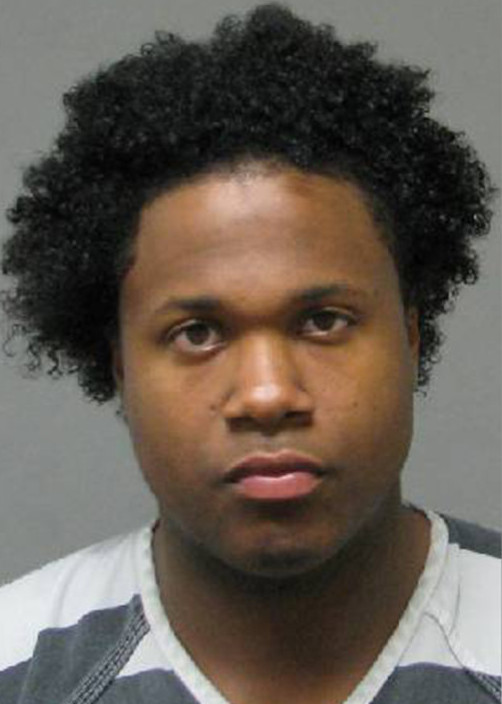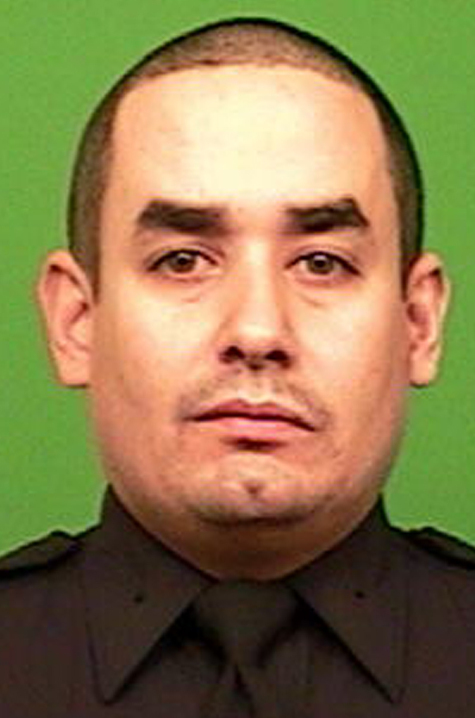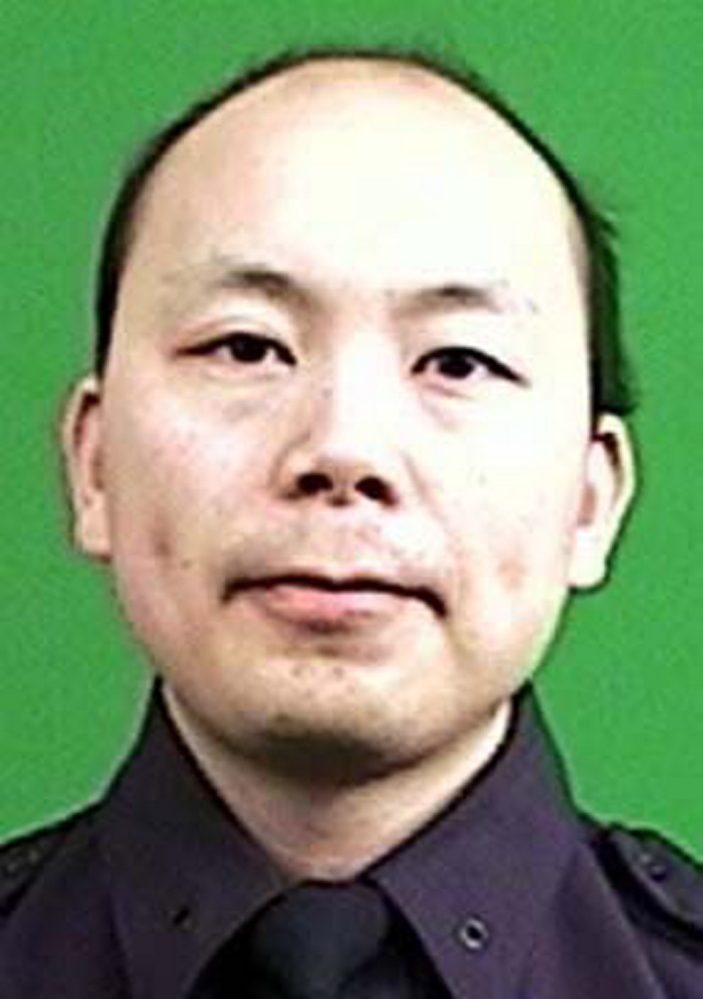NEW YORK — As the New York Police Department mourned two of its own, Mayor Bill de Blasio pleaded for a pause in protests and rancor amid a widening rift with those in a grieving force who accuse him of creating a climate of mistrust that contributed to the killings of two officers.
De Blasio called on Monday for a halt of political statements until after the funerals of the slain officers, an appeal to both sides in a roiling dispute centered on the deaths of unarmed black men at the hands of white police officers.
“We are in a very difficult moment. Our focus has to be on these families,” de Blasio said at police headquarters. “I think it’s a time for everyone to put aside political debates, put aside protests, put aside all of the things that we will talk about in all due time.”
De Blasio’s relations with the city’s police unions have tumbled to an extraordinary new low following Saturday’s shooting, an ambush the gunman claimed was retaliation for the police-involved deaths of Eric Garner in New York and Michael Brown in Ferguson, Missouri.
In a display of defiance, dozens of police officers turned their backs to de Blasio at the hospital where the officers died, and union leaders said the mayor had “blood on his hands” for enabling the protesters who have swept the streets of New York this month since a grand jury declined to indict an officer in Garner’s chokehold death.
De Blasio, though he said he did not agree with the union leaders’ comments, largely tried to strike a unifying note in his first extensive question-and-answer session since the shooting. He said he was confident the city was “working toward a day where we can achieve greater harmony toward policing and community.”
Officers Wenjian Liu and Rafael Ramos were ambushed Saturday afternoon by a man who vowed in an Instagram post to put “wings on pigs.” The man, Ismaaiyl Brinsley was black; the slain officers were Asian and Hispanic.
The killings came as police nationwide are being criticized following Garner’s death and the shooting death of the 18-year-old Brown. Protests erupted after grand juries declined to charge officers in either case.
On Monday, a prosecutor said a white Milwaukee police officer who was fired after he fatally shot a mentally ill black man in April won’t face criminal charges. The brother of the slain man, though clearly angry, urged protesters to remain peaceful.
De Blasio and NYPD Commissioner William Bratton met with the officers’ grieving families Monday.
“There’s a lot of pain. It’s so hard to make sense of it — how one deeply troubled, violent individual could do this to these good families,” a somber de Blasio said. “And I think it’s a time for everyone to take stock that there are things that unite us, there are things that we hold dear as New Yorkers, as Americans.”
But the Rev. Al Sharpton, a de Blasio ally, and other protest leaders said Monday they would not heed the mayor’s call to suspend demonstrations.
Investigators continued to depict Brinsley as an emotionally troubled loner. He had an extensive criminal record and was involved in a 2011 standoff with police in Georgia that ended with officers using a stun gun on him, according to records.
Police are trying to determine Brinsley’s whereabouts in the two hours he was in New York before killing the officers. Surveillance video shows Brinsley holding a foam food container that investigators believe held the gun he used. After the shooting, he ran into a nearby subway station and killed himself.
Police said Brinsley was a bystander during a protest in Manhattan’s Union Square two days before the Garner grand jury decision. It remained unclear if Brinsley simply latched onto the cause at the end of a violent rampage that began Saturday morning in Baltimore when he shot his ex-girlfriend in the stomach. The woman said Brinsley had first held the gun to his head but she talked him down, authorities said.
The police unions — which even before the weekend shooting had circulated a petition to ban the mayor from attending police funerals — blame de Blasio for fostering anti-police sentiment.
Sergeants Benevolent Associations head Edward Mullins refused to back down from that stance, saying the mayor “has turned his back on us — he got elected on his campaign of attacking the police all along.”
Bratton said representatives from the five unions had agreed to stand down until after the funerals, but he also downplayed their tensions with de Blasio.
“Can you point out to me one mayor who has not been battling with police unions in the last 50 years? Name one,” he said to reporters. “The experience of this mayor of some cops not liking him, it’s nothing new.”
But some pundits say the level of animosity between the unions and de Blasio had reached a critical point and the officers were even more inflamed than when thousands of officers stormed City Hall and stopped traffic on the Brooklyn Bridge in 1992 to protest Mayor David Dinkins’ efforts to create a civilian oversight board.
“It’s poisonous right now,” said Jeanne Zaino, political science professor at Iona College.
De Blasio said he would be willing to meet with the union leaders but angrily suggested their ire was fanned by media exaggeration of anti-NYPD sentiment among protesters.
Bratton said a viewing for Ramos would be held on Friday at a Queens church, followed by a funeral the next day. Officials are working to obtain travel documents for some of Liu’s family in China; a funeral will be scheduled after they arrive in the United States.
De Blasio said he would attend both funerals.
Send questions/comments to the editors.






